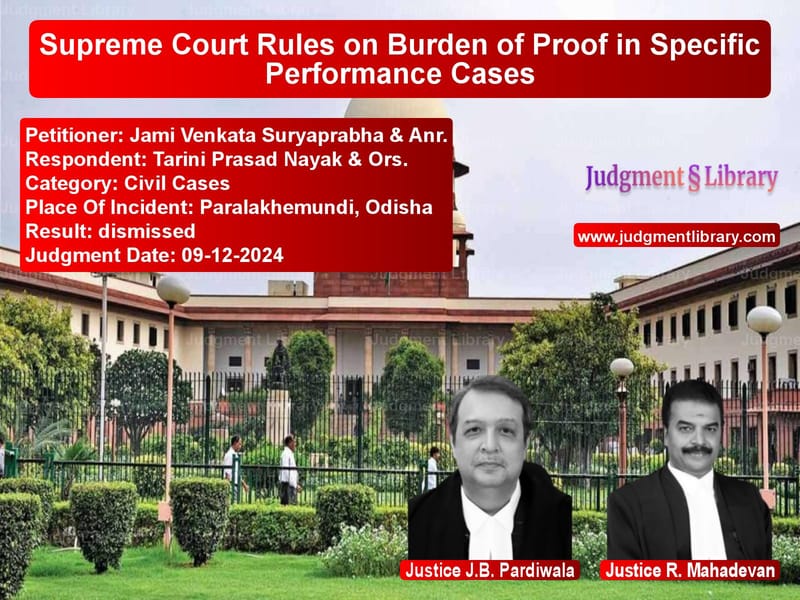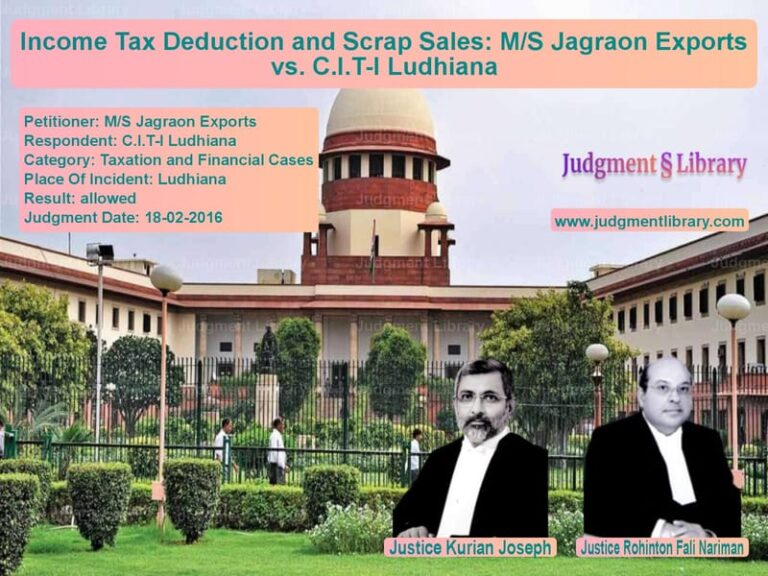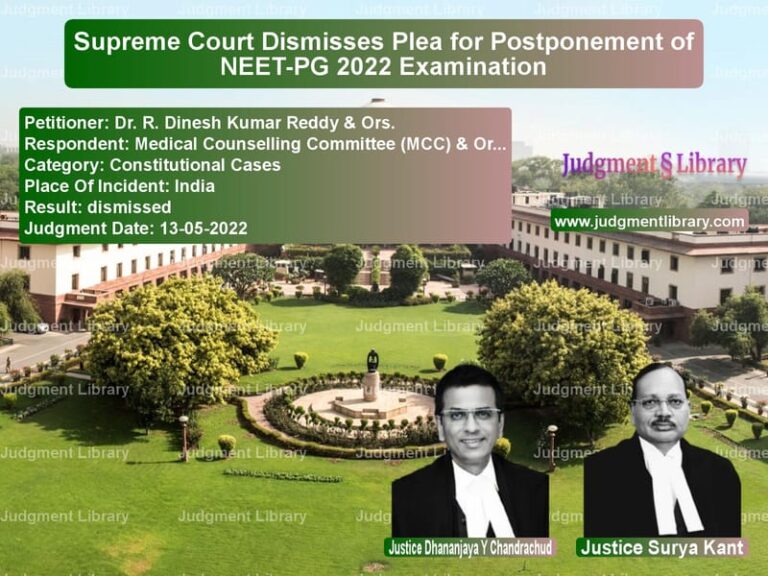Supreme Court Rules on Burden of Proof in Specific Performance Cases
The Supreme Court of India recently delivered a crucial judgment in Jami Venkata Suryaprabha & Anr. v. Tarini Prasad Nayak & Ors., clarifying the application of Order XVIII Rule 1 of the Civil Procedure Code (CPC) and the burden of proof in specific performance cases. The ruling reaffirmed that a defendant’s admission of an agreement’s existence does not automatically shift the burden of proof to them.
Background of the Case
The case revolved around an agreement for the sale of property, dated September 1, 2019, between the plaintiffs (petitioners) and the defendants (respondents). The plaintiffs filed a suit for specific performance, claiming that the defendants had entered into a legally binding contract for the sale of the property but later refused to honor it.
In their written statement, the defendants admitted that a document titled “agreement for sale” existed but contended that it was a sham transaction. Based on this, the plaintiffs filed an application under Order XVIII Rule 1 of the CPC, arguing that since the defendants did not dispute the agreement’s existence, they should begin leading oral evidence.
Key Legal Issues
- Whether a defendant’s acknowledgment of an agreement’s existence amounts to an admission of its enforceability.
- Whether the burden of proof shifts to the defendant when they claim the agreement is a sham transaction.
- The proper interpretation of Order XVIII Rule 1 of the CPC regarding the right to begin leading evidence.
Arguments by the Petitioners
The plaintiffs (petitioners) argued:
- The defendants’ written statement contained an admission that the agreement for sale existed.
- Since the agreement’s existence was undisputed, the burden of proof should shift to the defendants to prove that it was a sham transaction.
- The trial court should have directed the defendants to lead evidence first.
- The refusal to alter the order of evidence caused unnecessary delays and increased litigation costs.
Arguments by the Respondents
The defendants (respondents) countered:
- Although they admitted the existence of the document, they denied its validity and enforceability.
- The agreement was never intended to be acted upon and was merely a facade.
- The plaintiffs, as the parties seeking specific performance, had the primary burden to prove that the agreement was valid and enforceable.
- Under Section 102 of the Evidence Act, the burden of proof lies on the party who would fail if no evidence were led on either side.
Supreme Court’s Observations
The Supreme Court ruled that the trial court and the High Court had correctly rejected the plaintiffs’ request under Order XVIII Rule 1 of the CPC. The Court emphasized:
“The burden of proof in a suit or proceeding lies on that person who would fail if no evidence at all were given on either side.”
The Court cited Section 102 of the Indian Evidence Act and ruled:
“Where the defendant admits the facts alleged by the plaintiff but contends that the plaintiff is not entitled to any part of the relief which he seeks, it is the defendant who gets the right to begin.”
Read also: https://judgmentlibrary.com/supreme-court-upholds-possession-rights-in-specific-performance-cases/
The Court further clarified:
- “The mere existence of a document does not amount to an admission of its enforceability.”
- “Order XVIII Rule 1 of the CPC provides the plaintiff the right to begin unless the defendant admits the plaintiff’s facts and only contests the case on legal grounds or additional facts.”
- “The sequence of evidence is at the discretion of the trial court and cannot be dictated solely by one party’s interpretation of the pleadings.”
Final Judgment
The Supreme Court upheld the decisions of the High Court and the trial court, rejecting the plaintiffs’ application. It ruled:
- The plaintiff must first establish their case for specific performance before shifting the burden to the defendant.
- The defendant’s denial of enforceability, even if acknowledging the document, does not constitute an admission shifting the burden of proof.
- The trial court was correct in holding that the plaintiffs must lead evidence first.
The Court concluded:
“Order XVIII Rule 1 indeed provides for plaintiff’s right to begin the evidence but not the court’s obligation to ask the plaintiffs to begin first. There is no impediment for the court to call upon either party to lead evidence first, depending upon the facts and circumstances of the case and the nature of the issues framed.”
Implications of the Judgment
This ruling has significant implications for contract law and procedural law:
- Clarifies the burden of proof: Plaintiffs in specific performance suits must prove their case before shifting the burden to defendants.
- Strengthens procedural fairness: Courts retain discretion over the order of evidence, ensuring fair trials.
- Prevents procedural misuse: Defendants cannot be forced to lead evidence first based solely on a document’s existence.
Conclusion
The Supreme Court’s decision in Jami Venkata Suryaprabha & Anr. v. Tarini Prasad Nayak & Ors. is a landmark ruling on procedural fairness in civil suits. By upholding the principle that plaintiffs bear the burden of proof in specific performance cases, the Court has reinforced legal clarity and procedural justice.
Petitioner Name: Jami Venkata Suryaprabha & Anr..Respondent Name: Tarini Prasad Nayak & Ors..Judgment By: Justice J.B. Pardiwala, Justice R. Mahadevan.Place Of Incident: Paralakhemundi, Odisha.Judgment Date: 09-12-2024.
Don’t miss out on the full details! Download the complete judgment in PDF format below and gain valuable insights instantly!
Download Judgment: jami-venkata-suryapr-vs-tarini-prasad-nayak-supreme-court-of-india-judgment-dated-09-12-2024.pdf
Directly Download Judgment: Directly download this Judgment
See all petitions in Specific Performance
See all petitions in Contract Disputes
See all petitions in Judgment by J.B. Pardiwala
See all petitions in Judgment by R. Mahadevan
See all petitions in dismissed
See all petitions in supreme court of India judgments December 2024
See all petitions in 2024 judgments
See all posts in Civil Cases Category
See all allowed petitions in Civil Cases Category
See all Dismissed petitions in Civil Cases Category
See all partially allowed petitions in Civil Cases Category







